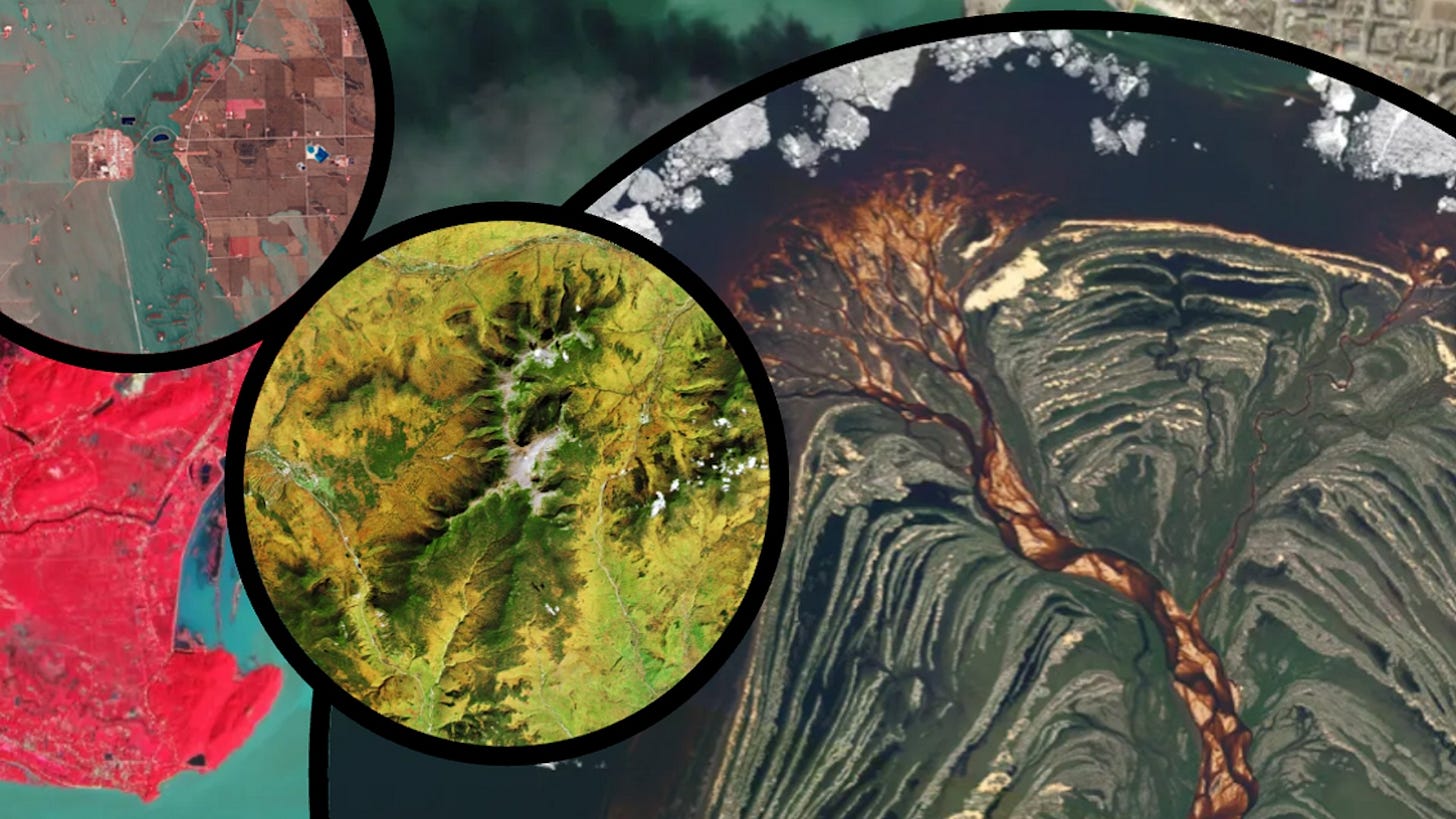Planetary Insights: How Satellites Could Transform Our Understanding of Earth’s Predicament
The Great Simplification # 173 with Will Marshall
When we are able to see the full scope of a problem, rather than a fragment, it changes how we respond. Throughout history, comprehensive data has catalyzed transformative change—from the measurements that spurred the halting of ozone depletion to the coral reef monitoring networks that revealed the devastating impacts of ocean acidification. Yet, the average person remains disconnected from visualizing their lifestyle’s impact on Earth's systems, leaving an incomplete perception of our collective footprint. But what transformations might occur if we could observe the full consequences of our consumption patterns as they ripple across forests, oceans, and the atmosphere in real time?
In this episode, I’m joined by Will Marshall, co-founder and CEO of Planet Labs. Planet Labs’ mission is to capture daily images and real-time data of the entire Earth using a fleet of hundreds of satellites, in order to make global change visible, accessible and actionable. Will shares how this data is being harnessed to tackle environmental challenges like deforestation and reducing methane emissions, and how AI is analyzing it to help governments, NGOs, and businesses make informed – and planet friendly – decisions. Will also emphasizes Planet Labs’ commitment to transparency and accountability on a global scale, ultimately aiming to make substantial contributions to the pursuit of Earth’s ecological integrity.
How can we harness this extraordinary technological innovation (and others like it) to better fulfill our roles as planetary stewards? What sorts of environmental projects – such as carbon trading or protecting coral reefs – benefit most from this new data? Finally, how are small communities using this data to create targeted, local environmental strategies that will build ecological wealth for future generations?
In case you missed it…
A few months ago, we invited viewers to share the projects, initiatives, and lifestyle changes they've embraced after becoming aware of the global challenges facing humanity. In last week’s special compilation episode, we featured just a few of the many inspiring videos that were submitted. The responses were diverse and surprising, ranging from community education and regenerative projects to small-scale repair shops and off-grid living. We hope these examples serve as inspiration for the kinds of prosocial actions we can each take in our own lives.
If you appreciate The Great Simplification podcast…
Be sure to leave a review on your preferred podcast platform! Leaving reviews helps the podcast grow, which helps spread awareness of our systemic situation from experts in ecology, energy, policy, economics, technology, and community building so that we can better understand - and respond to - the challenges of the coming decade.
The Great Simplification podcast is produced by The Institute for the Study of Energy and Our Future (ISEOF), a 501(c)(3) organization. We want to keep all content completely free to view globally and without ads. If you’d like to support ISEOF and its content via donation, please use the link below.






The office is in San Francisco so P.L. is no-doubt a US corporation. Is the B-corp charter sufficient to prevent a hostile takeover by, say, a military contractor, or by the chainsaw administration itself? During this constitutional crisis, what is to stop the chainsaw from aiming its power at P.L. to force it to change its charter or to force it to close by dint of lawsuits or other threats? What safeguards are in place against the AI training Anthropic's Claude is receiving being weaponized against the environment or in protection of the Mafia State? Has P.L.'s QA tried things like asking Claude to generate a DeepFake based on all it has learned from P.L.'s satelite data?
My spouse is retiring from a career as a consultant to the US State Dep't in software testing, QA and clear RFP writing, so he has taught me to ask these sorts of questions.
Thank you for this excellent episode. I've watched every episode you've made. I started watching around two years in, and went back and watched all the back episodes. Every single one is a hit.
In the early 90s I catalogued my 35-40 year collection of National Geographics. In the years up to the first lunar walk, the tone was, "look at the wonders of this great big beautiful earth!" The first year after the walk seemed more reflective, and thereafter, the tone became, "look at how fragile this tiny little marble floating in the sky is!" Could Planet Labs capture imaginations the way that moon walk did?